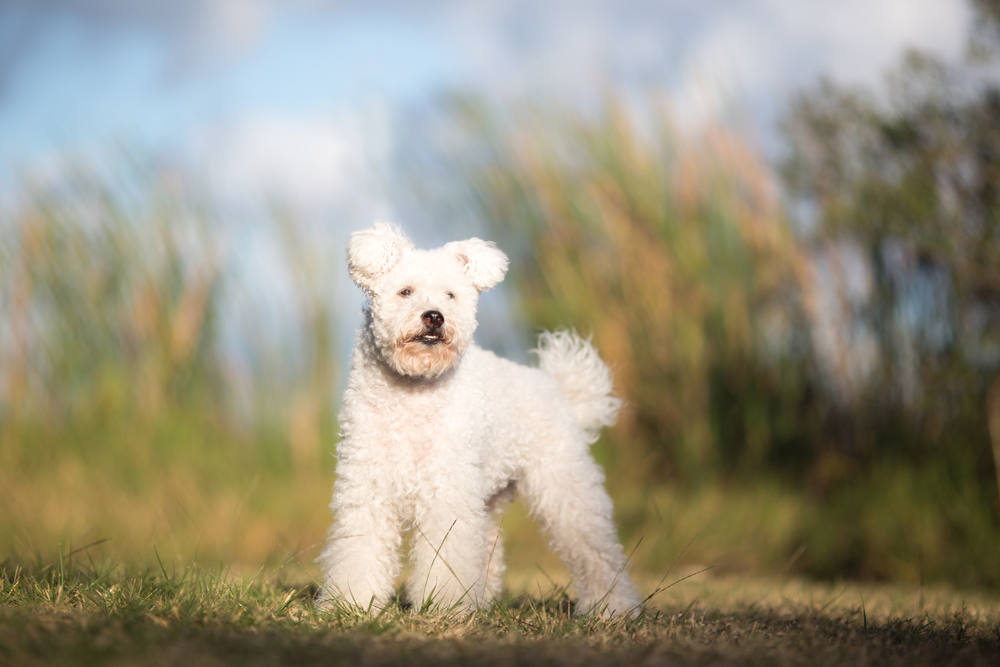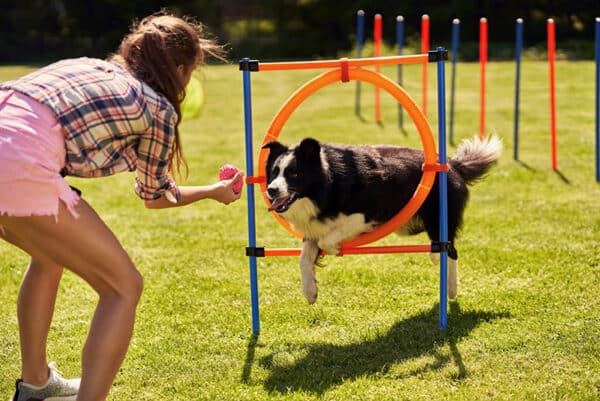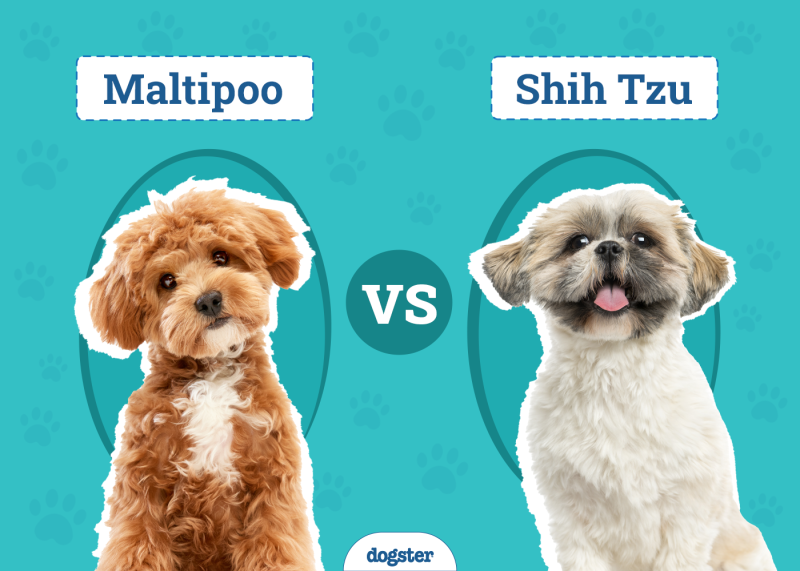In this article
View 8 More +You might not know much about the adorable, fluffy Pumi, and you aren’t alone. For as versatile, compatible, and phenomenal as these canines are, they get next to no attention. The Pumi is one of the most recent dog breeds to be accepted into the AKC. What took so long?
In this article, we’re going to explain all there is to know about owning a Pumi, and what this breed is all about. If you are interested, you will know by the end of this article whether you are a compatible match.
Breed Overview
Height:
12–18 inches
Weight:
15–35 pounds
Lifespan:
12–15 years
Colors:
White, blue, silver, red, brown, gray, black
Suitable for:
Active families, those looking for a low-shedding dog
Temperament:
Loyal & loving, intelligent, easy to train, friendly, gets along with other pets
The Pumi is one of three Hungarian hurting dogs: the Pumi, the Puli, and the Mudi. Each one of these dogs are very similar, and some would claim one in the same. However, due to their very different physical characteristics, the AKC separates each breed into three different categories.
The Pumi is one of them. This is a herding dog with a terrier-like essence. These dogs are very intelligent and headstrong but eager to please, making them highly trainable and easy to work with.
Pumi Characteristics

Pumi Puppies
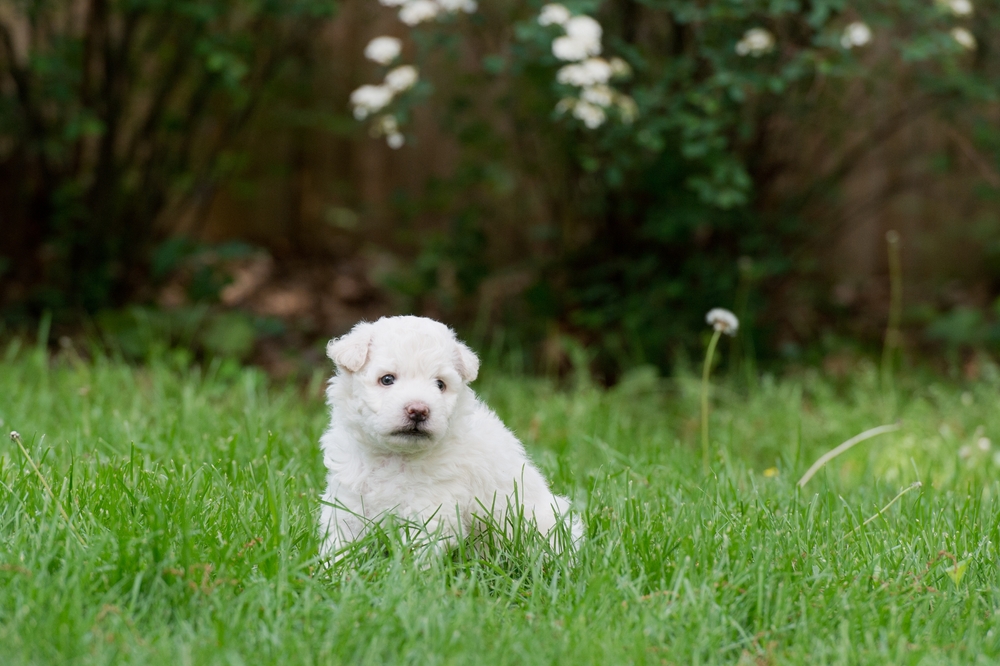
If you plan to get a puppy, you better start doing your research ahead of time. Finding a puppy can be quite a challenge and potentially unsuccessful. Even though this is a very interesting and valuable breed, it seems that it is wildly unpopular. So, keep in mind that there might be some travel involved if you plan to bring one of these pups into your family.
You should always look for reputable, licensed breeders with a history of healthy, successful litters. This is the best way to ensure you get a puppy that will live a long, healthy life.
Pumi puppies will be very playful, excitable, and easy to train. Many owners will love their sharp, smart eyes and kind demeanor. Even as puppies, these dogs have a strong connection and willingness to learn from owners.
Pumi Origin & History
The Pumi is a Hungarian breed that accompanied a trio—the Mudi, Puli, and Pumi. Each one had its own special development that led to a standalone breed. The Pumi was the terrier-like of the three and has direct ancestral ties.
The Pumi was bred to create a herding breed using German and French herding dog influences. Even though they were brought into existence over 300 years ago, they didn’t become recognized by the American Kennel Club until 2011. These dogs have always been pretty elusive, remaining rare despite their many uses.

Temperament & Intelligence of the Pumi 🧠
The Pumi is an incredibly intelligent breed that is versatile and highly trainable. They are hyper-aware of your body language and vocal tone.
They can pick up on your mood easily and recalibrate quickly. They can be trained in any arena. They are severely underappreciated for the capabilities they possess. If you have a Pumi, they will impress you every day, with their willingness to learn and their bright personality.
These dogs tend to bring a little pinch of cheer with them wherever they go, so they do everything with joy. This puppy breed is definitely not one that you ever have to use any harsh punishments with. They are highly receptive to your emotions and desires, doing their best to appease you.
Are These Dogs Good for Families?👪
An exceptional, family companion, these dogs are athletic dogs that are in good spirits most of the time. Because of their cheerfulness and high energy levels, they make terrific playmates for children.
Pumis absolutely love roaming around outside. To truly make them happy, a place in the country where they can run and explore is ideal. You could still have a Pumi in a residential area as long as you had a large fenced-in yard or the commitment to take them out for long periods.
This breed naturally loves the outdoors, so it’s definitely an area that you shouldn’t compromise in. Because of their exuberance and exercise needs, these dogs wouldn’t make the best candidates for seniors or those with any physical disabilities.
However, they can acclimate to just about any other lifestyle or situation.

Does This Breed Get Along With Other Pets?🐶 😽
Pumis are usually team players, too, and they make exceptional candidates for homes with other canines. The breed truly is a friend to all. Despite its herding characteristics and wanting to get everything in line, these dogs are usually very gentle and complacent with other pets.
If the Pumi is raised alongside cats, they can get along with them quite well. These dogs are definitely not aggressive or known for killing a specific kind of animal.
So, that is a safe bet to have if you have smaller pets but use extreme caution with animals like chickens and smaller cage animals. These dogs love to chase and play, and anything that moves quickly could be a target.

Things to Know When Owning a Pumi
Food & Diet Requirements🦴
Pumis don’t need a specialized diet, but they do require a high-quality meal with all the right nutrients to keep up with their calorie depletion. Wet canned food and dry kibble are still viable options on the pet food market.
However, many parents are shifting their attention to breed-specific formulas, fresh diets, homemade meals, and raw feedings. Ultimately, it’s up to you how you feed your dog. We highly recommend working alongside your veterinarian so you can get the best recommendations possible.
Your Pumi is highly athletic and will need to replenish their bodies on a daily basis. As long as they’re getting their nutritional needs met, they will stay extremely sturdy, healthy, and alert.
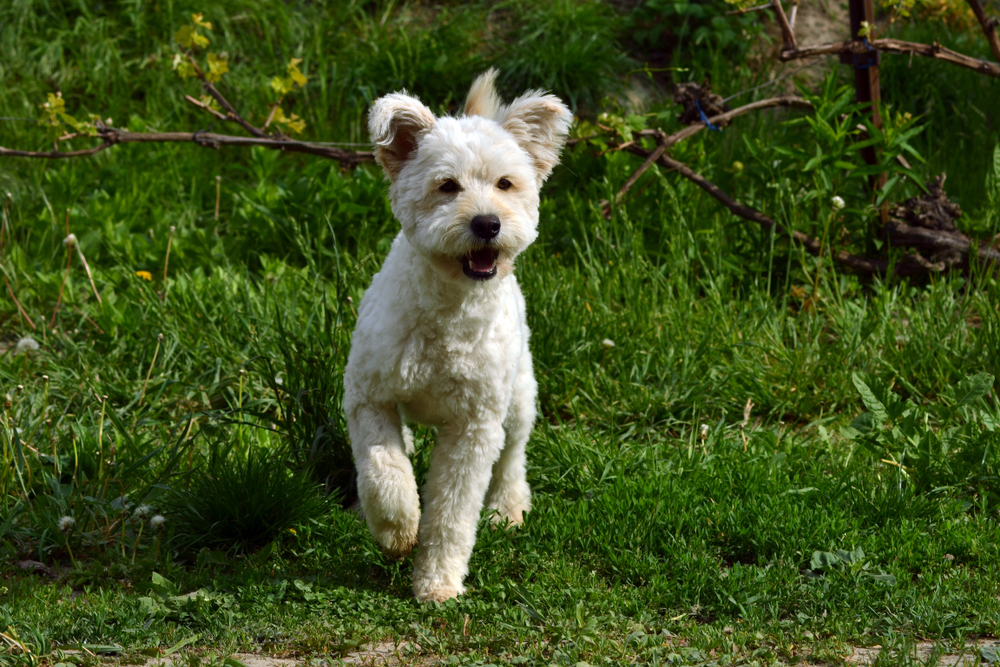
Exercise🐕
Pumis certainly need their fair share of exercise to stay happy. This is a highly athletic breed that loves running, jumping, playing, and exploring their natural herding capabilities.
On average, Pumis should get between 60 and 90 minutes of solid, strenuous exercise per day. They work best in homes where they can run around off leash, free to explore as they please.
Training🎾
The Pumi makes an excellent candidate for training, because they are incredibly loyal dogs that are very receptive to their owners’ wants.
If you are looking for a dog that you can easily train yourself, this is a wonderful dog to have. Because they bond so intensely with their owners, and have such a willingness to please, they will likely snap to it, even if they’re feeling pretty off that day.
The Pumi does not like to feel as though their owners are disappointed. During training, as they feel like you are starting to get a little frustrated or slightly upset with them, you will likely see them respond, so keep in mind that harsh punishments are never necessary when your Pumi is learning— or anytime for that matter.
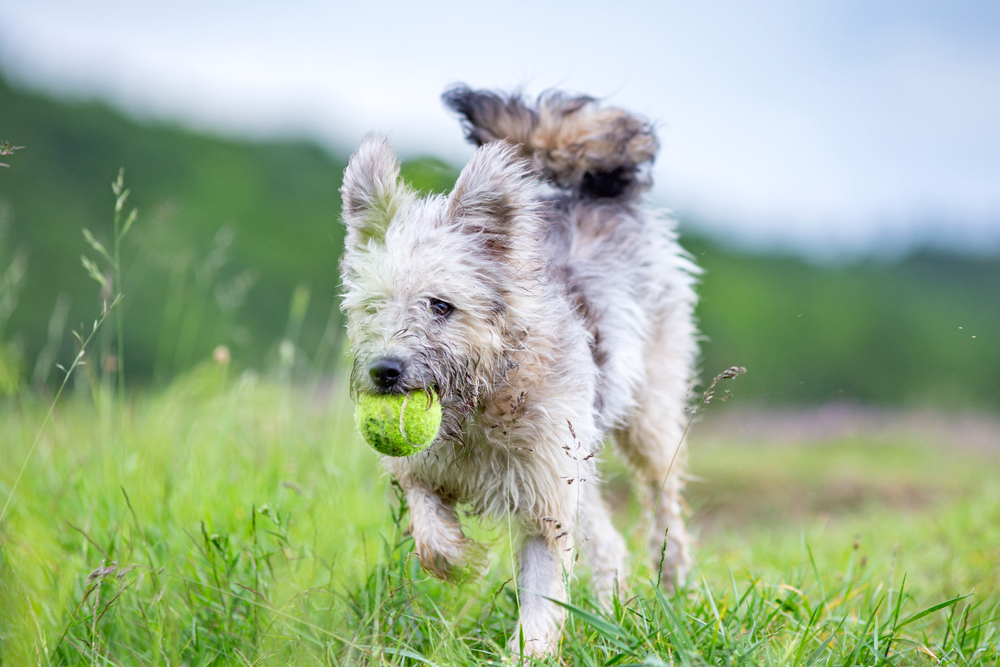
Grooming✂️
Grooming your Pumi will be a fun task! These dogs have very down, wooly-looking coats that are extremely soft and light. These dogs require daily brushing to prevent mats and tangles. You should always be prepared to take good care of your Pumi.
All dogs, including the Pumi, need a bath every 4 to 6 weeks. You can always follow up bath time with nail trims, teeth brushing, and ear cleaning.
The Pumi is a highly social breed, so they will thrive on going to see their groomer as well. If you want to pamper your pooch, take them on a trip and get them glamorized head to toe.
Health and Conditions🏥
Health is an incredibly important aspect of canine care, and certainly one you shouldn’t cut corners with. During your Pumi’s first year of life, they’re going to get to know their veterinarian quite well.
Anytime you bring your dog home from a breeder, they likely need their set of follow-up shots , unless you got them after 12 weeks of age. During this time, your vet can determine if there are any visible underlying health conditions to date. They will also get routine vaccinations, parasite prevention, spay or neuter surgery, and microchipping.
This breed was built to withstand rough terrain and tough jobs. They are incredibly physically sound, and generally stay pretty healthy. However, there are certain genetic health conditions that may still plague the breed.
- Eye disorders
- Hip and elbow dysplasia
- Patellar luxation
- Degenerative myelopathy
Male vs Female
It can be very hard to decide whether you want to get a boy or a girl when you are picking out a puppy. There are upsides to both, so we can see why the decision is tough. The male Pumi tends to be a little larger in size, outweighing their female counterpart by up to 10 pounds. They tend to stand a little taller and broader at the shoulders.
The females tend to be a little springier and daintier. If you were trying to decide between the male and female based on personality, it really isn’t a great criteria. Sex really doesn’t influence the overall behavior of a dog since personality is such an individual component. Never buy your dog under the pretense that they will be any specific way, based on sex alone.

3 Little-Known Facts About the Pumi
1. The Pumi was used for specific herding tasks.
Back in the day, the Pumi had the special task of herding sheep across narrow roads of connecting pastures in their native land.
2. The Pumi is also called the Hungarian herding terrier.
The Pumi definitely has terrier influence. So much, in fact, that they are also called the Hungarian herding terrier. That definitely says more about their capabilities!
3. The Pumi can be advantageous for city living.
While the Pumi is a highly energetic dog that needs lots of exercise, they can adapt to city living If they have the right owner. Mainly, it’s up to you to make sure they get the exercise they need no matter where you live!

Final Thoughts
Now, you know more about the family-friendly Pumi. This great lover of the outdoors is a rare and sought-after breed that definitely deserves more attention than it has received in the past several years. This happy little dog could be a perfect addition to many different lifestyles.
If you think that a Pumi sounds like a dog that you want to invite to your home, you can always look for breeders around your area. Keep in mind that these dogs are incredibly rare and travel is almost definite. Only you can decide if it’s worth it.
Featured Image Credit: Kerrie T, Shutterstock
